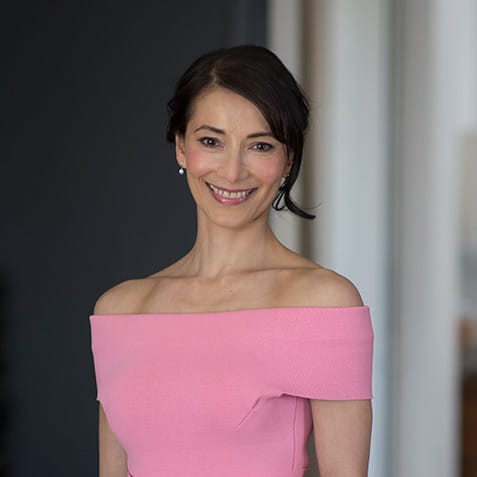Have you noticed how some people have a particular lens for experiencing the world? It may be their religion, their role as a parent, their identity as a vegan. It’s the scaffolding on which they hang their views and the filter through which they interpret life.
For me, that lens is psychology. Since childhood I’ve been obsessed with minds. I’ve always steered conversations toward deeper, more personal topics. When we’d play Truth or Dare I’d only care about the truths. In my 30s I went back to uni to get a bachelor of psychology with an honors thesis on personality and, unlike the third circle of hell that was my first degree in commerce, it was pure joy.
Now, in my closest friendships we endlessly psychoanalyze ourselves and pretty much everyone we know. In fact I struggle to be friends with people who don’t go deep; it’s too boring. I binge books and TV on psychology and therapy. I have the DSM app on my phone and have been known to pause a show to triumphantly diagnose a character’s personality disorder. (I am a LOT of fun to watch TV with.)
This psychology lens is excellent – I can always understand why people do things. Even serial killers, which I scrutinized in the 90s because they were the one class of people I couldn’t comprehend; and now I can. Yep, even politicians, including those inscrutable ones. People, basically, make sense to me.
But this psychology lens is also awful – I can always understand why people do things. So I never really get mad at anybody, even when someone might *deserve* it. Anger is a healthy emotion, though, and I don’t express enough of it and that has cost me.
My psych training has also taught me how things go awry. Defenses we develop to protect ourselves in the short term can harm us over time. Adversities and shocks can impair us and sometimes we can’t recover on our own. Chemical and organic processes can upset the equipoise of our delicate mental systems.
To deal with my own charming awrynesses (not a word), I’ve taught myself therapies. My favorites are Dialectical Behavior Therapy, Internal Family Systems, and Schema Therapy – they are all wonderful and if I were Queen Of The World we would learn them at school as life skills. When needed, I stage my own therapeutic interventions for the cost of a Super Choc Drumstick. I have no actual therapist qualifications, so neither of us makes a fuss as we sit in our session and lick our ice creams. And I have gone to trained professionals when my frozen-treat-based DIY ministrations didn’t cut it.
I can’t understand why we don’t view mental health the way we view physical health: first, google the symptoms to discover you are definitely and imminently dying. Obviously. But then, go see a professional. Repair is part of life – bodies have stuff go wrong, so do minds. It breaks my heart that people suffer mental anguish, agony, because they are ashamed to seek help, or belittled for doing so.
Recently, a friend who works in a highly stressful field suffered a heartbreaking trauma on the job. It shook him up badly, but he couldn’t consult a therapist without it affecting his reputation. Imagine if that’s how we treated physical ailments: Well, I can’t see a doctor because people will think less of me, I’ll just soldier on with this bone sticking out of my arm.
It’s worse for men – though thankfully less now for younger ones – who suffer compounded masculinity pressures. I’ve mentioned a few times I’m being more honest these days. Well, I’ve had candid conversations about mental machinations with male friends where they *confessed* they’d had or were having therapy, but I was the only one who knew. It’s not something they’d tell anyone.
I’m not suggesting we bandy about our mental health issues at dinner parties or when picking up the dry cleaning the way some people overshare gory body details no one wants to hear. I believe in dignity, discretion, and a little mystique, always.
But I hope the way we manage our minds becomes more like taking care of our bodies. No shame. Getting help when we need it. Sharing how we feel when we want to. Health care, self care.
Though, if I may offer a suggestion? It wouldn’t hurt if psychologists kept Super Choc Drumsticks on hand. Because they truly help.
Do you have a lens for life? What is it?
Even if you ‘know’ mental health is important, do you still feel mental healthcare is embarrassing?
Please, talk to me!
Photo by Karley Saagi.




















Comments
Jane McKellar
Beautiful and important. x
Michele Connolly
to Jane McKellar
Thank you, Jane. x